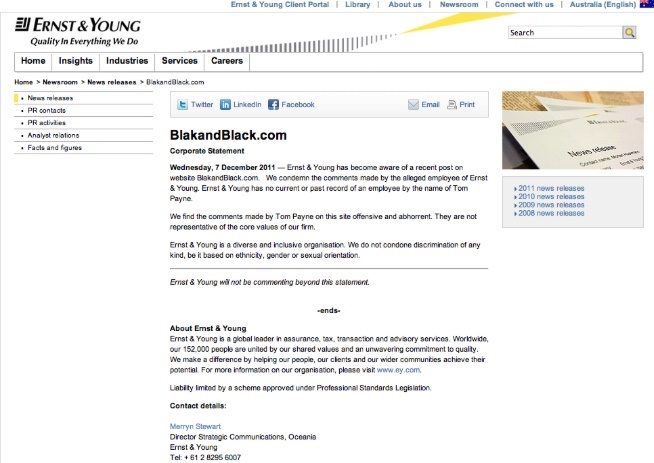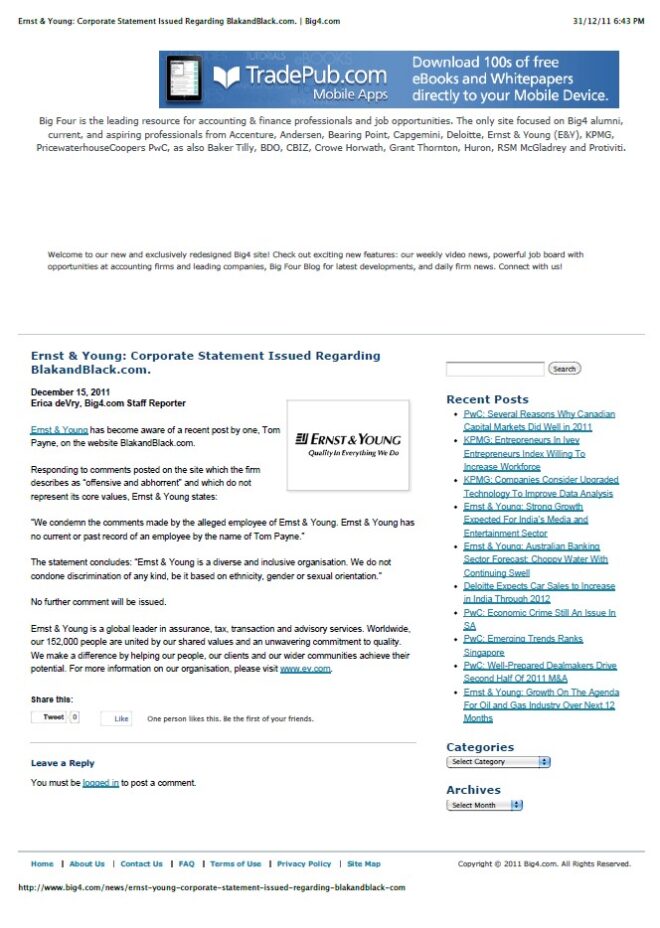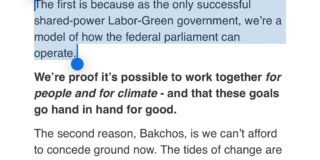
In my two decades of advocacy and writing about systemic issues of racism and injustice, I have encountered numerous instances where powerful institutions have failed to uphold their moral and ethical responsibilities. One such institution is Ernst & Young, a global leader in professional services, which has been at the centre of a disturbing narrative involving racism and the undermining of Indigenous rights in Australia.
The troubling case revolves around two employees of Ernst & Young based in Canberra: Tania Taylor and Gillian Morphett. They played a pivotal role in assisting Angel Marina, a self-confessed white supremacist and former ACT Treasury employee, in his racially motivated campaign against his Indigenous manager, Mr. Mullins. This campaign was not merely a personal grievance; it was an orchestrated effort to vilify and undermine Mr. Mullins solely because of his Indigenous heritage.
What is particularly alarming is the revelation that Mr. Mullins’s personnel file at Ernst & Young was fraudulently altered long after he had departed from the firm. This manipulation of documents enabled Marina to leverage these false records in a bid to have his Indigenous manager dismissed. Such actions not only highlight a grave breach of ethical conduct but also reflect a systemic failure within Ernst and Young to address and rectify the toxic culture that allowed such racism to flourish.
When I reached out to Ernst & Young to bring attention to these illegal actions, I was met with a chilling response from their Australian managing partner, who provided me with their address for service. This was not just a mere bureaucratic gesture; it was a clear message that the firm considered itself untouchable, suggesting a culture that prioritises power and influence over accountability and integrity. The response echoed a sentiment of indifference to the racism that permeated their ranks, as if to say, “We are bigger and nastier than you, and we will not be held accountable.”
The situation escalated when individuals claiming to be Ernst & Young employees began posting outrageously racist comments on my website, www.blakandblack.com. Tracing the IP addresses of these comments revealed connections back to InTACT and Ernst and Young servers in the ACT, further entrenching the belief that the firm was complicit in fostering an environment where such vitriol could thrive.
On December 7, 2011, Ernst & Young’s head office in the United States felt compelled to issue a corporate statement addressing the offensive behaviour of “their staff.” They claimed, “We find the comments made by Tom Payne on this site offensive and abhorrent. They are not representative of the core values of our firm.” I challenge the sincerity of this statement. How can a firm profess to abhor such comments while simultaneously aiding and abetting a racially motivated vendetta against an Indigenous former employee? The contradiction is glaring and raises serious questions about the true values that underpin Ernst & Young’s corporate culture.
The ramifications of these actions extend far beyond the individual experiences of those involved. Ernst & Young’s complicity in the destruction of an Indigenous family – resulting from the actions of a white supremacist with connections in their ranks – reflects a broader issue of institutional racism and the need for accountability. It is disheartening to observe that Ernst & Young Canberra appears to have entered into an agreement with the ACT government to suppress all materials relating to their involvement in Angel Marina’s racist campaign. This agreement, in part, is why I found myself charged and forced to endure a two-week criminal trial in the ACT Supreme Court in 2017, a trial I ultimately won with a unanimous verdict of 16-0.
Despite this victory, the quest for legal accountability from Ernst & Young and the ACT government continues. The lack of meaningful repercussions for the firm’s actions raises profound concerns about the integrity of our institutions and their commitment to combating racism. It is imperative that we hold these organisations accountable, not only for their past transgressions but also for their ongoing responsibility to foster an inclusive and respectful workplace.
As I reflect on these events, I am reminded of the vital importance of speaking out against injustice and advocating for those who have been marginalised. The actions of Ernst & Young serve as a stark reminder that we must remain vigilant in our efforts to challenge racism and demand accountability from those in positions of power. The fight for justice is far from over, and it is a fight that we must all engage in – together.
Let us not forget the lessons learned from this troubling saga and let us continue to strive for a society where respect, dignity, and equality prevail over hatred and bigotry.




